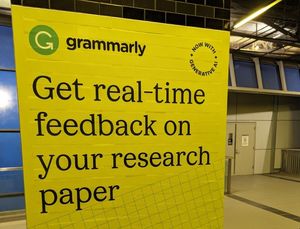There has been a lot of discussion in various quarters of late about Frameworks or Reference Models for the library and related communities. Of immediate relevence, DLF, JISC/DEST and NISO have been looking at various ways of modelling the information environment in terms of processes, services (services in a technical sense, as a machine-accessible component on the network), and other entities. Of course, there is significant activity along these lines in other domains, and in an enterprise context. One unifying approach is provided, for example, by RUP.
These initatives are differently motivated. Quite often, though, we see two motivations. One is to have a better sense of the business processes required to support particular business goals. Think here of the OAIS Reference Model which models the digital preservation space. This is important for scoping applications and services. Unless a process is identified and agreed, then we will not see the development of substitutable systems, and redundant development is costly. The ERMI report was important in making explicit some of the issues surrounding Electronic Resource Management, for example, and providing confidence for several systems to emerge.
The other is to understand a specific set of services might be specified and implemented in a particular context: what services are important and what technical approaches define them. This is about interoperatibility and portability of applications. Think here of the Adore architecture developed by Herbert Van de Sompel and colleagues [pdf] [ppt]. This issue is increasingly important for libraries as they want to ‘compose’ their services in a particular environment, whether that is internal (think for example of metasearch) or external to the library. In the latter case, think of the framework provided by Sakai or uPortal. We do not have a routine set of library services we might want to expose to those environments, or a routine way of implementing them.
I have been involved in a variety of these initiatives and will talk about this issue in more detail again. However, here is a short note prompted by something that I just came across. I have been working on a retrospective piece for other purposes and found this text that I wrote some time ago:
Libraries will build information and cooperative services on the basis of various computer to computer applications ….. There are pilot and demonstrator services, and some library-specific standardization work in progress. However this work is not guided by any consensual view of the future of the communications-related activities of libraries, of which applications will support which services, or of which standards should be used to implement particular applications. There is a danger that the effectiveness of a future library network activity will be diminished if a number of different approaches are now taken.
Several more or less formal “reference models” have been developed for particular user communities or applications areas. The library community could benefit from the construction of a high-level reference model or framework, which would provide a well-understood context for future system development and standardization efforts. The best approach is a matter for investigation; it may be that the impact of networking on library services in not yet sufficiently understood, or that needs are too diverse, to warrant such an approach. Such a model, however, would help bring into focus the range of technical and standardization issues which now need to be addressed.
This is from:
Lorcan Dempsey. Libraries and networking. Library Information
Briefings. Double Issue 37/38, December 1992.
Yes — that date is 1992 😉
Looking back over that time, I think that we have indeed suffered from a lack of a shared view. In a sense, we have had an implicit shared view of process which became encapsulated in the ILS: cataloging, circulation, and so on. However, as we see the emergence of easier ways to communicate between systems, as libraries move in various new systems directions (resolution, digital asset management, ERM, metasearch, and so on) that shared view has been superseded and not replaced. Indeed, I wonder whether the absence of a map has been a major factor in why distributed approaches been have slow to develop in the library community – despite the enormous investment in programs and projects in several countries.
As we move forward, I become more convinced that we need a very lightly sketched high level view which shows the general landscape, in terms of processes that are important, and then more focused attention on particular areas. A third area for agreement is a general way of representing such models. I hope that these soon come out of the initiatives I mention above.
What are examples of areas for more focused attention? A service layer for repositories is one place where there is some current discussion: what common set of services would we expect repositories to support (e.g. search, get, put, harvest ….), and what protocols should support those. Another is the area I mentioned the other day, where we are seeing a growing need to interact programmatically with the functionality that we usually see delivered to ILS user interfaces (e.g. what is the circ status of an item, can I place a hold, etc). I suggested that an ILSSLI would be useful (an ILS servive layer initiative).
What we don’t want is grand hypothetical endeavors that never intersect with what people are doing and need to do.



